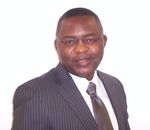By Joseph M. Ndifor (Opinion Writer)
For centuries, universities have been citadels of great ideas and changes that have had ripple effects on virtually every society around the world, and the University of Buea (UB) shouldn’t be an exception. But for a country whose university professors have been defanged and clubbed into submission by the ruling government, one would expect that the university student body—as is rife in other countries—would step up to the plate and be the vanguard for the vital changes that Cameroon needs at this time of despair.
In fact, there was once a trailblazer in this arena, whose voice wasn’t only heard in Cameroon, but on the world’s stage: it was at Nsukka University in Nigeria in 1956—at the height of the Suez Canal Crisis in Egypt—that a young Cameroonian student named Albert Mukong, chose to interrupt his university studies in order to return home and fight the system.
And fight he did. In a series of scathing commentaries in local newspapers that followed his return to Cameroon that year, Mukong— now on some sort of intellectual exile from Nsukka University—piqued the consciences of Southern Cameroon politicians for meaningful changes at the time. However, with the ascendency of Cameroon’s Ahmadu Ahidjo on the presidency some years later, the ax fell! There’s not a single prison that can be located within Cameroon today that the late Mukong, at one time or another, wasn’t its political occupant.
I also recall that in the late eighties in Yaounde, then-National Security Chief, Denis Ekane, attempted luring Mukong to throw his support behind the Biya regime. But this Babanki native, with a high sense of foreboding—and as events have dismally unraveled today to prove him right—evaded being snared by a government that he so much despised.
As Mukong eloquently narrates some of these experiences in his memoir—Prisoner without a Crime—his “baptism of fire” as he describes them, or the spark that catapulted him into political activism, actually began on that idyllic university campus in Nsukka, Nigeria, in 1956.
But when one races forward to the University of Buea, fifty seven years after Mukong’s experience at Nsukka, what does one find unfolding? There, about two weeks ago, the so-called “strike”, which in some instances in the past, have resulted in the wanton destruction of university property—and bedeviled its management since its inception in 1993—gangsterism, a far cry from what students’ activism ought to be, has taken hold. The very idea that university students who are “academically adrift”—very evident in the unidiomatic expression of their president’s response to newspapers following the strike—can hold the vice chancellor of a university hostage, smacks of hooliganism that has no place in a university environment. When students get this unruly, is it any surprise that for the sake of restoring order, the vice chancellor, who came on board highly esteemed at the time, even by these students, has suddenly become the romantic bully on the UB campus?
Apparently because of the breakdown of every institution, stemming from Yaounde, there appears to be some gross misunderstanding about what a civil disobedience entails, and West of the Mungo, university students now wrongly assume that every deviant act against the authorities should be welcomed by the public. But I make exceptions when these issues run counter to what the norms are in every civil society, and vandalism, hooliganism, and racketeering on a university campus, especially in a fragile country like Cameroon, must be denounced.
But lest one ignores these major events regarding students’ activism: Who can forget that a May 1968 university students’ strike in France, brought that country’s entire economy to a standstill, and almost toppled President de Gaulle’s government? (In fact, de Gaulle temporally fled to a French military base in Germany, leaving behind George Pompidou to take charge.) Or that the once-moribund Youth Wing of the African National Congress was reinvigorated on the university campus at Fort Hare by students like Nelson Mandela, Walter Sisulu and Oliver Tambo of South Africa? Or that the TPLF (Tigrayan People’s Liberation Front), which ousted Marxist president Mengistu Haile Marian of Ethiopia, was formed by a university student, the very brilliant and articulate late president, Meles Zenawi?
True, betrayed by university professors, who are either jockeying for the next ministerial appointments or silenced by the system, these students have become rudderless and need some directions. But were they to embark on a students’ movement, with a wider appeal, even internationally (like those that once civilly rattled the authorities in countries like France, Ethiopia and South Africa), they may, ironically, put these professors or mentors on an intellectual trial. It’s the stuff that a university environment ought to instill in the minds of these UB students.
Contact author at: nmungu@yahoo.com
See online: Buea University Unbound

